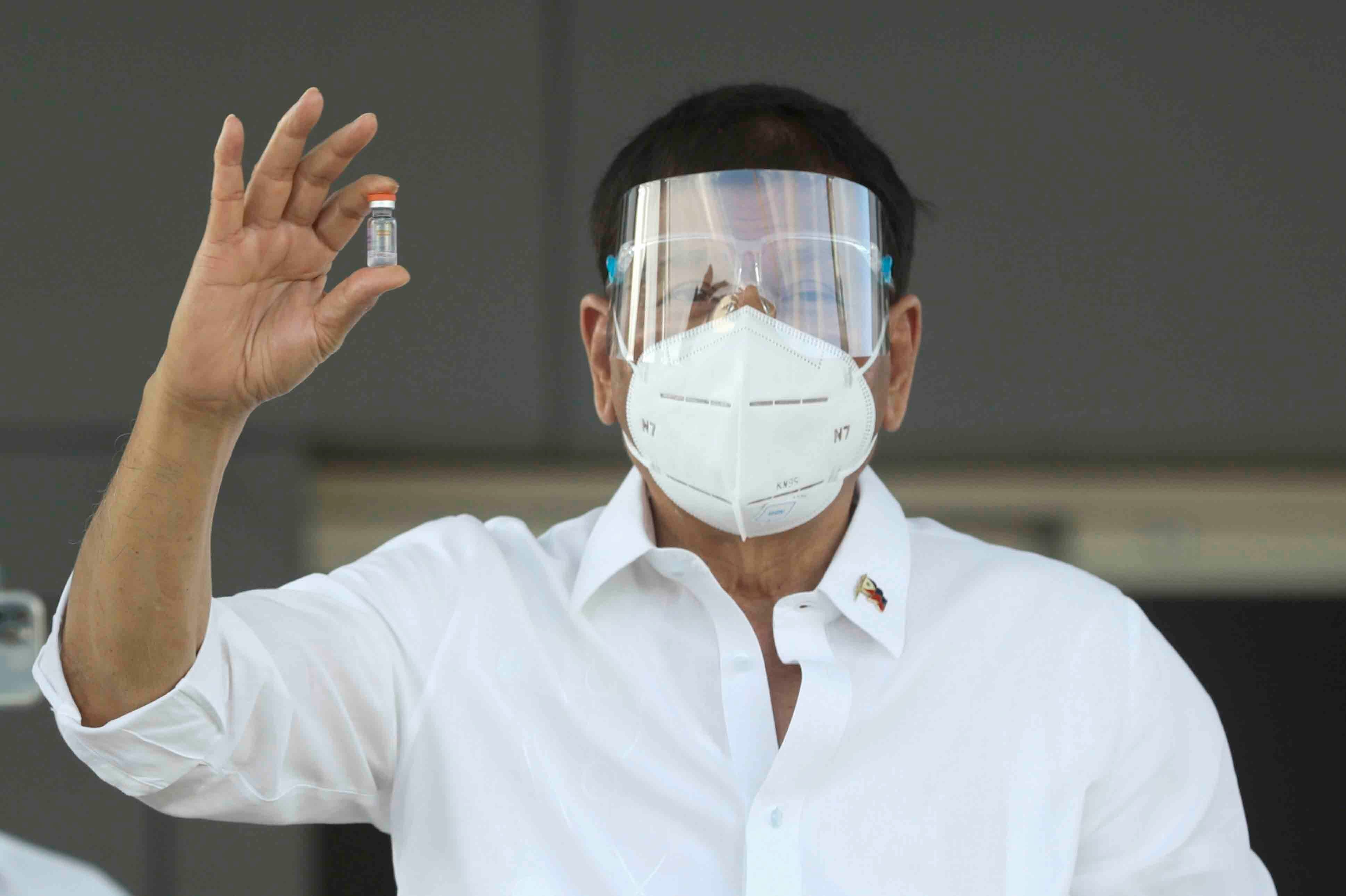Philippines launches virus vaccinations amid supply problems
The Philippines has launched a vaccination campaign to contain one of Southeast Asia’s worst coronavirus outbreaks

Your support helps us to tell the story
From reproductive rights to climate change to Big Tech, The Independent is on the ground when the story is developing. Whether it's investigating the financials of Elon Musk's pro-Trump PAC or producing our latest documentary, 'The A Word', which shines a light on the American women fighting for reproductive rights, we know how important it is to parse out the facts from the messaging.
At such a critical moment in US history, we need reporters on the ground. Your donation allows us to keep sending journalists to speak to both sides of the story.
The Independent is trusted by Americans across the entire political spectrum. And unlike many other quality news outlets, we choose not to lock Americans out of our reporting and analysis with paywalls. We believe quality journalism should be available to everyone, paid for by those who can afford it.
Your support makes all the difference.The Philippines launched a vaccination campaign Monday to contain one of Southeast Asia’s worst coronavirus outbreaks but faces supply problems and public resistance which it hopes to ease by inoculating top officials.
Cabinet officials, along with health workers and military and police personnel, were among the first to be vaccinated in six hospitals in Metropolitan Manila, after President Rodrigo Duterte and other top officials received 600,000 doses on Sunday of COVID-19 vaccine donated by China.
At the state-run Philippine General Hospital in Manila, the hospital director, Dr. Gerardo Legaspi, was inoculated first by a nurse in a televised event and was followed by Cabinet and Department of Health officials.
“Let’s get vaccinated, let’s save lives every day. We need to move on,” Manila Mayor Isko Moreno said in a speech at the hospital, adding he would get vaccinated in about a week after health workers have been immunized.
The Philippines was among the last Southeast Asian countries to receive its first batch of vaccine due to delivery delays although it has reported more than 576,000 infections, including 12,318 deaths, the second-highest totals in Southeast Asia after Indonesia. Lockdowns and quarantine restrictions have set back Manila’s economy in one of the worst recessions in the region and sparked unemployment and hunger.
“Our economy is really down, as in down so the earlier these vaccinations gain speed, the better,” Duterte told a televised news conference late Sunday after witnessing the delivery of the Chinese-donated vaccine at an air base in the capital.
Duterte said he was considering to further ease quarantine restrictions in the capital and elsewhere once the vaccination campaign gains momentum. With just 600,000 doses available for about 300,000 people to get two doses each, Monday’s immunizations were billed as symbolic.
Aside from China’s donated vaccine from Sinovac Biotech Ltd., the government has separately ordered 25 million doses from the China-based company but no fixed date has been set for the deliveries. Health Secretary Francisco Duque III said the delivery of an initial 525,600 doses of AstraZeneca’s vaccine that was initially scheduled for Monday would be delayed by a week due to supply problems.
China’s donation is a tiny fraction of at least 148 million doses the government has been negotiating to secure from Western and Asian companies to vaccinate about 70 million Filipinos for free in a massive campaign funded by foreign and domestic loans. The bulk of the shipments are expected to arrive later this year amid the global scramble for COVID-19 vaccine.
Duterte’s administration has come under criticism for lagging behind most other Southeast Asian countries in securing the vaccines, but the president has said wealthy Western countries have cornered massive doses for their citizens, leaving poorer nations scrambling for the rest.
Aside from supply problems, there have been concerns over the vaccine’s safety, largely due to a dengue vaccine scare that prompted the Duterte administration to stop a massive immunization drive in 2017. There have also been concerns even among health workers over the Sinovac vaccine because of its lower efficacy rate compared to others developed in the West and Russia.
Carlito Galvez Jr, who leads government efforts to secure the vaccines, said Duterte saw some surveys showing low public confidence in the Sinovac vaccine and ordered him and other top officials to be inoculated with it.
At the Philippine General Hospital, where he got inoculated with the Sinovac vaccine, Galvez said Filipinos could not return to normal life and the economy would not be able to recover if people refuse to get immunized and prefer Western vaccines, which would come later in the year.
“We should not wait for the so-called best vaccine. There is no best vaccine because the best vaccines are those which are effective and efficient and come early,” Galvez said in a speech at the hospital.
Subscribe to Independent Premium to bookmark this article
Want to bookmark your favourite articles and stories to read or reference later? Start your Independent Premium subscription today.